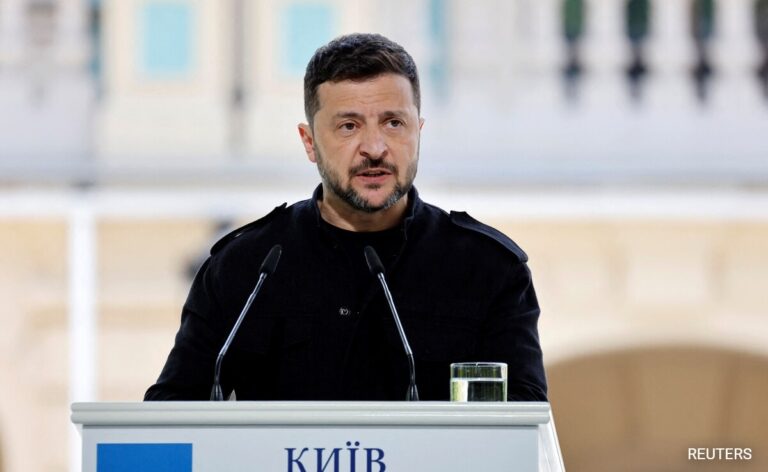U.S. Lawmaker Urges Pakistan to Eliminate Extremist Groups and Protect Minorities in High-Stakes Meeting
Brad Sherman Urges Pakistan to Tackle Extremism and Protect Minorities in Meeting with Bilawal Bhutto Zardari
In a significant diplomatic move, U.S. Congressman Brad Sherman recently emphasized the urgent need for Pakistan to eliminate extremist organizations such as Jaish-e-Mohammed, as he met with a delegation led by former Pakistani Foreign Minister Bilawal Bhutto Zardari in Washington, D.C. This meeting comes amid heightened tensions and ongoing discussions between India and Pakistan following a ceasefire agreement on May 10.
A Call to Action Against Extremism
On June 7, 2025, Sherman took to social media to express his views post-meeting, highlighting the critical issue of terrorism in Pakistan and its regional implications. Describing Jaish-e-Mohammed in strong terms as a "detestable" organization, he underscored its role in promoting extremism and violence, especially against religious minorities. Sherman’s poignant remarks reflect a growing concern among U.S. lawmakers regarding the impact of such groups on both regional stability and global security.
The congressman’s remarks were particularly impactful given the violent history associated with Jaish-e-Mohammed. The organization gained infamy for its involvement in numerous terrorist activities, including the brutal murder of Daniel Pearl in 2002, a journalist who was well-known for covering South Asia. His family continues to reside in Sherman’s electoral district, making the issue more personal for the congressman.
Pakistan’s Recent Diplomatic Maneuvers
This meeting occurred at a pivotal moment when both India and Pakistan have dispatched delegations to various countries to explain their respective positions regarding security and diplomatic relations. The Pakistani delegation’s visit to the U.S. aimed to clarify its stance on recent conflicts and highlight its commitment to address concerns over terrorism and extremism.
Congressman Sherman also urged the Pakistani leaders to contemplate the release of Dr. Shakil Afridi, a physician imprisoned for aiding the U.S. in locating Osama bin Laden. Afridi’s continued detention, viewed by many in the U.S. as an injustice, complicates the already tense U.S.-Pakistan relationship. Sherman argues for Afridi’s release as a gesture towards better cooperation in the fight against terrorism and as a means of honoring the victims of the September 11 attacks.
Addressing Water Rights and Human Rights in Sindh
During the discussions, Sherman’s advocacy extended beyond terrorism. He expressed concerns about water rights, particularly regarding the Indus Waters Treaty, a crucial agreement governing the allocation of river waters between India and Pakistan. He emphasized the need for both countries to refrain from unilateral actions that could exacerbate tensions.
- Key points raised by Sherman:
- Indus Waters Treaty Compliance: Stressing that neither China nor India should engage in actions that could destabilize water rights in the region.
- Human Rights Violations: Highlighting the alarming rate of enforced disappearances and political repression in Sindh, where approximately 8,000 cases have been documented by Pakistan’s human rights commission since 2011.
Sherman’s comments resonate with ongoing issues in Sindh, where water scarcity and human rights abuses have led to public unrest. He mentioned specific instances of violence linked to protests over water rights, underscoring the humanitarian crisis affecting local communities.
Empowering Religious Minorities
Sherman also articulated a vision for a more inclusive Pakistan, where religious minorities, including Christians, Hindus, and Ahmadi Muslims, can practice their faith without fear of violence or discrimination. He stated that these communities should enjoy the freedom to participate in a democratic process without facing persecution or inequality.
In highlighting the plight of religious minorities, Sherman’s advocacy aligns with broader international calls for human rights reforms in Pakistan. Pakistan’s commitment to this cause will be crucial in fostering better relations with the West and improving its global standing.
Conclusion: A Path Forward
The discussions between Congressman Sherman and the Pakistani delegation signal a renewed focus on combating extremism and improving human rights and humanitarian conditions in Pakistan. As both nations navigate complex diplomatic landscapes, addressing these issues will be vital for future cooperation and regional stability.
With the spotlight now on Pakistan’s commitment to action against terrorism and support for human rights, it is clear that the road ahead will require substantial effort from all parties involved. As highlighted by Congressman Sherman, this is a critical juncture not just for Pakistan, but for the larger South Asian region.
In the coming weeks, the world will be watching closely to see how Pakistan responds to these pressing challenges and whether meaningful change can be realized amid a backdrop of conflict and historical grievances.





